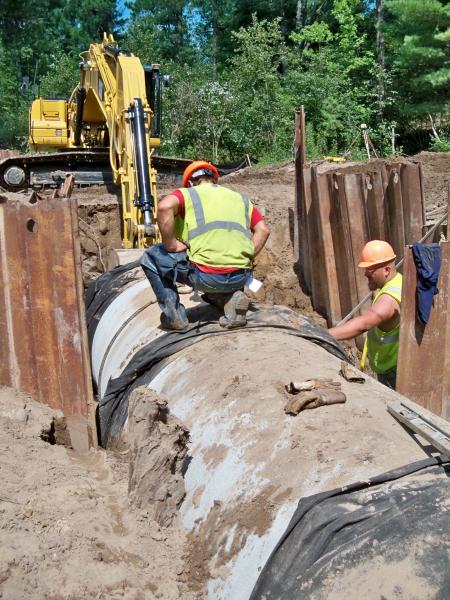Home>About River Restoration
About River Restoration
Northwest Michigan is rich with high quality streams and lakes. However, excessive sand or sediment bedload is a main problem for many rivers in this region. Common sources of sand include historical logging practices, our transportation system, the construction and operation of dams, improper agricultural and livestock practices, development, excessive recreational use, and other mismanaged practices involving earthmoving within the riparian corridor and manipulation of stream flows. Extreme high water events are usually needed to flush accumulated sand from waterways that share the following characteristics: a sandy soil drainage, high groundwater input, stable water flows, and low gradient. The regionís rivers often support valuable ecological and economical resources including migratory trout and salmon populations that need clean gravel to reproduce and cool water temperatures to survive. Having too much sand threatens instream habitat by covering gravel beds used for spawning and aquatic insect attachment spots, and burying resting and feeding habitat. Sediment changes the shape of a stream channel and increases water temperature by filling deep holes, burying instream woody debris, and causing channels to become wide and shallow. A river or creek bottom that is solely comprised of sand resembles an underwater desert!
Through this website we can track river restoration needs and accomplishments for listed watersheds in Northwest Michigan. Many accomplishments or projects involve completing Best Management Practices (BMPs) at problem sites. BMPs are effective, practical, structural or non-structural methods that reduce the movement of sediment, nutrients, chemicals and other pollutants from the land to groundwater and surface water. BMPs range from fieldstone placement, tree and shrub plantings, and terracing at eroding streambanks to pavement, diversion outlets, and culvert/bridge replacements at road/stream crossings.

